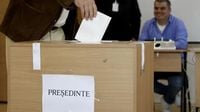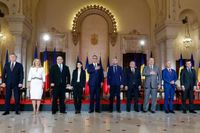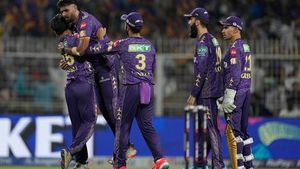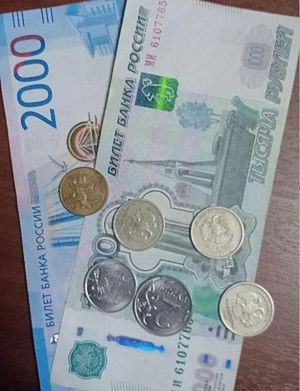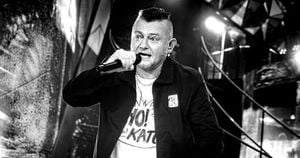On May 4, 2025, Romania is once again casting its votes in a presidential election that follows a tumultuous and controversial annulment of the previous election held in November. The stakes are high as the country grapples with the implications of its political choices, which could reshape its future within the European Union and NATO.
The polls opened at 7:00 AM local time and will close at 9:00 PM, with around 19 million eligible voters expected to participate in this critical election. This election is particularly significant as it marks the second attempt to elect a president after the Constitutional Court invalidated the November results due to allegations of electoral irregularities and foreign interference, specifically citing the pro-Russian candidate Calin Georgescu, who was barred from running again.
George Simion, the leader of the far-right Alliance for the Union of Romanians (AUR), has emerged as the frontrunner in this election. Polls indicate that he could secure between 29% and 34% of the votes, significantly benefiting from Georgescu's exclusion from the race. Simion's platform is characterized by ultranationalist, anti-EU, and anti-NATO sentiments, and he has been vocal against military aid to Ukraine. His campaign, heavily reliant on social media, particularly TikTok, aims to connect with younger and less educated voters, as well as the Romanian diaspora.
By midday, voter turnout was reported at 28.7%, which translates to approximately 5 million voters having cast their ballots. This turnout is slightly higher than the previous election, indicating a renewed interest in the electoral process. The election features a total of eleven candidates, with Simion likely to face off against either Crin Antonescu, the candidate of the ruling coalition, or Nicusor Dan, the independent mayor of Bucharest, in a runoff scheduled for May 18 if no candidate achieves an outright majority.
Crin Antonescu, aged 65, represents the establishment's effort to counter the rising tide of nationalism. He has positioned himself as a pro-European candidate, aiming to reassure voters about Romania's commitment to EU and NATO alliances. His support is drawn primarily from the current governing coalition, which includes the Social Democratic Party (PSD), the National Liberal Party (PNL), and the Hungarian minority party (UDMR). Polls suggest he could secure between 21% and 26% of the vote.
Nicusor Dan, who is 55 years old and has a background in mathematics, is known for his reformist agenda and is also seen as a centrist candidate with realistic chances of stopping Simion. His campaign promotes an 'Honest Romania' platform, emphasizing the need for systemic reform and a continued alignment with Western values. However, his support is primarily concentrated in urban areas, which may limit his overall appeal.
Former Prime Minister Victor Ponta, who led Romania from 2012 to 2015, is also in the race, although he is polling significantly lower than the leading candidates. Ponta has adopted a nationalist stance, advocating for a 'Romania First' policy and expressing skepticism toward EU directives, particularly regarding the transit of Ukrainian grain through Romanian ports. His return to politics is seen as a potential threat to the pro-European consensus, with many fearing that his election could lead to a pivot away from Western alliances.
The political landscape in Romania has been deeply affected by the fallout from the annulled November elections, which sparked widespread protests and accusations of a coup against the judiciary. Supporters of Georgescu have voiced their discontent, claiming that the annulment was politically motivated and undermined the democratic process.
The outcome of this election will have profound implications for Romania's future, particularly concerning its role within the EU and its relationships with NATO allies. A victory for Simion could signal a shift toward a more nationalist and sovereignist approach, raising alarms in Brussels and among other European capitals. Conversely, a win for Antonescu or Dan could reaffirm Romania's commitment to European integration and cooperation.
The election is not only a referendum on Romania's political future but also a reflection of broader trends across Europe, where populism and nationalism are gaining traction amid economic uncertainty and dissatisfaction with traditional political establishments. The results of this election could reshape the dynamics of power in Romania and influence the country's stance on critical issues such as immigration, foreign policy, and economic reform.
As the day unfolds, all eyes will be on the polling stations, where the decisions made by Romanian voters will resonate far beyond the borders of the country, impacting the future of the EU and the stability of the region.
